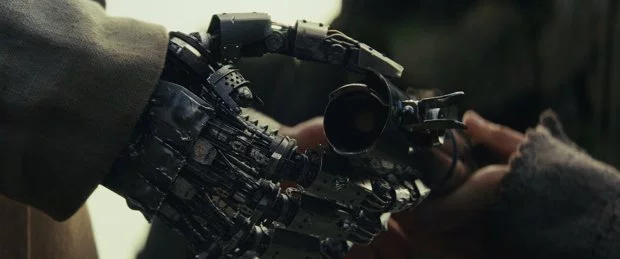
Of the myriad moments in The Last Jedi that have caused an uproar among the fandom, it is Luke Skywalker’s actions in Ben Solo’s hut that have proved the most divisive. Given the Rashomon treatment, we see the scene three times, with Luke withholding key information in the first telling – namely that he had ignited his lightsaber with the briefest view towards murdering his nephew.
Understandably, a sizable portion of fans feels betrayed by this moment, and that it is out of character for Luke, a man who saw the good in his fallen father when nobody else believed, the man who threw away his lightsaber while staring down pure evil, proudly declaring his allegiance and heritage as a Jedi. A figure of warmth and optimism would not, could not contemplate such a barbarous act… surely?
The Last Jedi is many things; among them it is a comment on Star Wars and Star Wars fandom itself – a concept that is already being explored more than adequately. It is also, within the narrative, an examination of what it means to be a Jedi, and what values that involves. Writer-director Rian Johnson, via Luke, is explicit in his view of the classic, prequel-era Jedi Knights: that they were heinously derelict in their duty and allowed Darth Sidious to create the Empire while exterminating their order, but is only an invitation to dig deeper into the film’s (and Luke’s) view on the differing ideologies of the saga’s other two key Jedi characters: Obi-Wan Kenobi and Yoda. Read More
